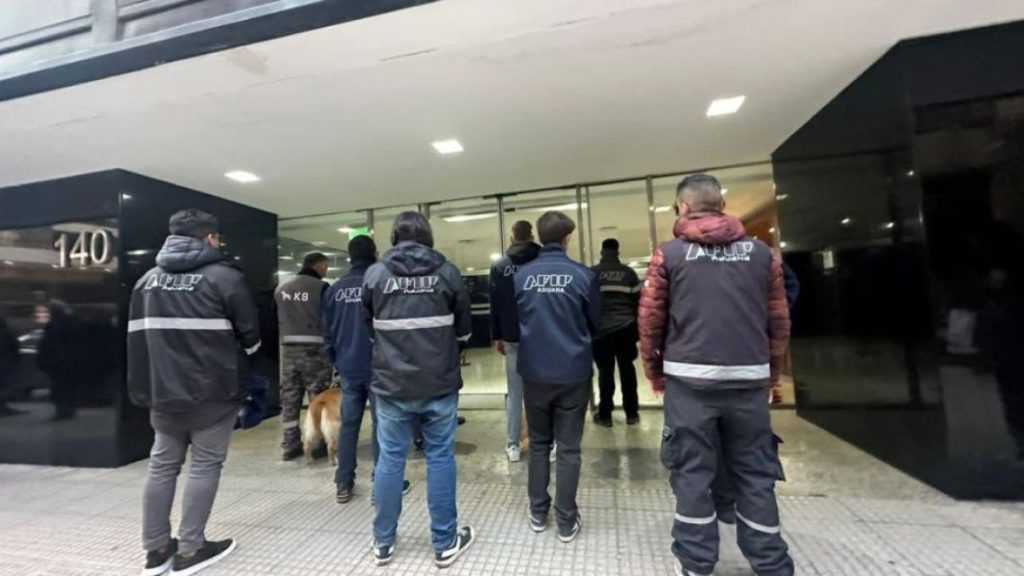Nimbus Group, one of the capital’s biggest illegal currency traders, shut down by police; Officials say site, headed by ‘King of the cuevas’ Ivo Esteban Rojnica, is one of largest operators of ‘blue dollar’ exchanges in Argentina.

Police operations in central Buenos Aires lasted well into the night on Wednesday (October 11) as authorities raided a host of black market currency traders, locally known as “cuevas.”
A number of trading houses, which buy and sell foreign currency at the parallel ‘blue dollar’ exchange rate, were stormed by police after Judge Marcelo Martínez de Giorgi authorised searches conducted by the Federal Police and customs agents.
One such operation resulted in the dismantling of Nimbus Group, one of the capital’s largest traders which is headed by the so-called “Croatian,” Ivo Esteban Rojnica.
Rojnica is deemed by the government to be the main trader of the ‘blue dollar’ – a parallel legal exchange rate used for small transactions – in central Buenos Aires.
Sources say his operations spread to the United States (where a service of open offshore accounts may have been run) and Spain, among other countries.
He also had financial agencies in Uruguay, Ciudad del Este and Asunción, Paraguay; and in Bolivia.
Investigators also detected operations and million-dollar deposits in the name of a travel agency used as a cover to transfer dollars abroad.
Police officers went over to Nimbus’ headquarters on Wednesday with a search warrant. The office was closed and empty when they arrived with AFIP tax office officers in tow.
Given that, they had to knock down the door and shortly thereafter Rojnica let them know via his lawyer that he would not go for fear of being arrested.
Inside, officers found a large office full of desks, computers and workstations which were seized. They found evidentiary elements which were also taken into custody and may be of interest for the case. They included notes itemising foreign exchange transactions, banknote counting machines, empty bags of different sizes and paper shredders with destroyed documents, officials said.
Other evidence relevant to the case were girdles to strap notes onto the body. They were similar to those found with Chinese citizens arrested in other operations conducted by the police in Buenos Aires’ Chinatown earlier in the week.
Official sources also found a series of folders which show accounts opened abroad, which will be key as it leaves the country in a position to serve notice on the Fincen, the anti-laundering body in the United States. Similarly, they found documents with transactions in Paraguay, companies in Spain, and transfers to Uruguay and Bolivia.
– TIMES/NA
 Макроекономија Економске анализе, Србија, окружење, и међународна економија
Макроекономија Економске анализе, Србија, окружење, и међународна економија